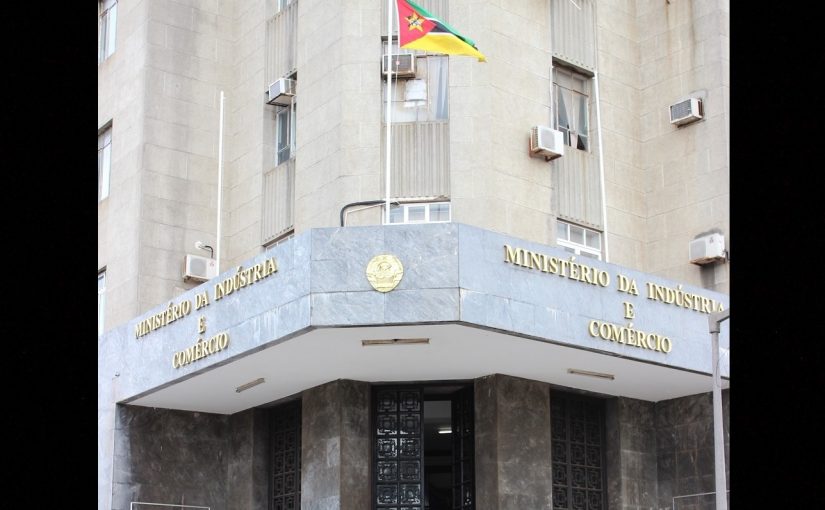Mozambique central bank raises concern over lack of anti-money laundering training
Mozambique to cut profit margins on essential products – Carta

Image: Ministério da Indústria e Comércio - Centro de Informação e Negócios/ Facebook
The government, through the Ministry of Industry and Commerce (MIC), is proposing, through a revision of the relevant decree, to reduce the profit margin on essential products. The proposed revision will cut the maximum wholesale profit margins on essential products from the current 10% – 12% to 5% – 8%, and in retail prices from 20% – 25% to 10% -12%.
According to the MIC proposal, to which ‘Carta’ has had access, the revision aims to substantiate the legislatures desire to ensure that consumers are not affected by any erosion of their purchasing power, and to adopt specific measures to be applied to essential products due to their role in the nutrition of low income earners.
The MIC underlines in the proposal that the implementation of the Decree in force has proved not very successful due to the combined action of a number of factors, with emphasis on the repeated price hikes practice by economic agents, generating distortion of the market with a direct impact on the consumer, allied to the lack of incisive mechanisms of deterrence which induce the business community to take a defensive position.
Essential products and profit margins
The decree currently in force lists 12 necessity products: frozen chicken, horse mackerel, sardines, mackerel, common beans, rice, cornflour, flour, cooking oil, sugar, tomato, onions, potato and eggs. The MIC proposal adds two more products – cement and zinc sheets – to this list
The proposed new decree sets, for the first eight products mentioned above, a maximum profit margin for the wholesaler of 5% and of 10% for the retailer. For example, if a product costs 1,000 meticais after import or domestic manufacture, the wholesaler’s profit margin must be no more than 50 meticais, that is, the price to the buyer must be, at most, 1,050 meticais. At a retailer, the same product must cost a maximum of 1,100 meticais, giving the retailer 100 meticais profit.
For the remaining six products of the 14 mentioned above (tomatoes, onions, potatoes, eggs, cement and zinc sheets), the new proposal sets a maximum margin of 8% for the wholesaler and 12% for the retailer. That is to say, if a product costs 1,000 meticais after importation or at the national factory/industry for the wholesaler, the maximum profit must be 80 meticais and 120 meticais for the retailer, and the product must cost no more than 1,080 and 1,120 meticais, respectively.
In addition to changes in margins and products, the MIC also includes a proposal alluding to the frequency of revision of the parameters, that is, the establishment of a time frame (generally one year) for the revision of profit margins, but also opening space for the exceptional revision of the profit margins, for reasons of public interest, public health, economic interest, equity and productive viability.
The proposal to revise the current regulation on maximum profit margins for basic products also foresees the aggravation of the sanctions framework to include legal provision for both the suspension of the activity and the closure of the establishment and withdrawal of the license depending on the seriousness of the infringement.
In the decree in force, a fine of fifty times the minimum wage [for the civil service] is set for the retailer, but in the proposed revision, this penalty falls on the wholesaler. Furthermore, while the regulation in use currently sets a fine of forty minimum wages for the wholesaler, in the proposed revision, this penalty goes for the retailer.
No less important is that, with the amendments, the revision proposal now displays 34 articles against 21 that make up the current regulation.
Basis of the revision of nº 56/2011, of 4 November
The MIC notes that the revision of the aforementioned diploma aims to improve the rules and procedures for setting, changing and reviewing the profit margins of basic products, in the interest of the effective realisation of consumer rights, under article 92 of the Constitution of the Republic (CRM) , which falls within the scope of paragraph 1 of article 101, also of the Constitution, which reads as follows: “The State promotes, coordinates and supervises economic activity, acting directly or indirectly to solve the fundamental problems of the people and to reduce social and regional inequalities”.
The proposed revision of the Decree in question must be considered and approved by the Council of Ministers and then submitted to the Assembly of the Republic.
By Evaristo Chilingue













Leave a Reply
Be the First to Comment!
You must be logged in to post a comment.
You must be logged in to post a comment.